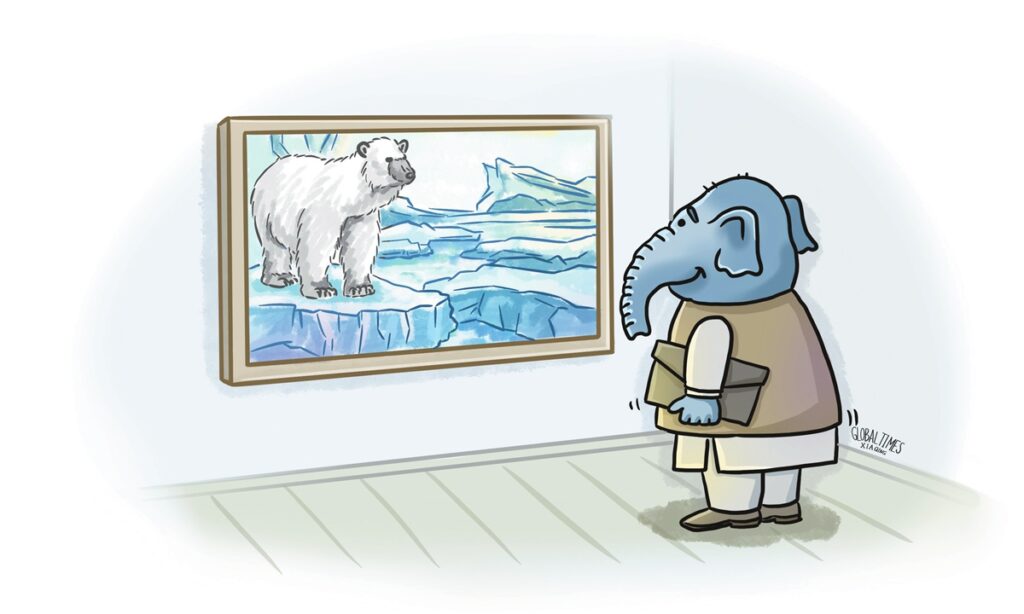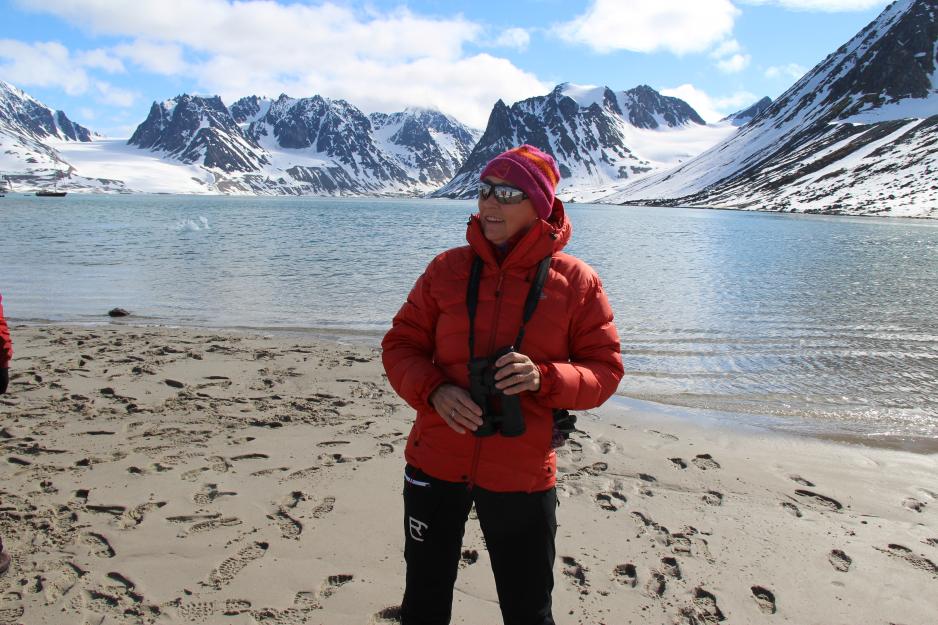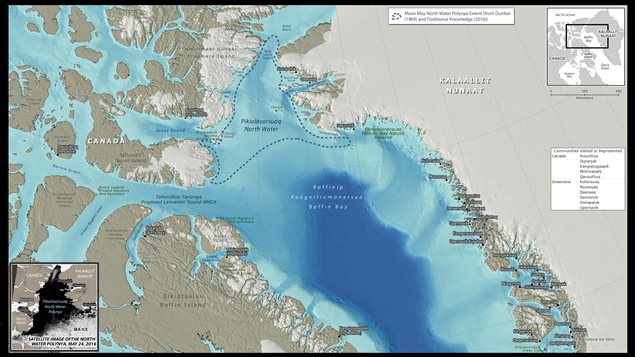Can India’s Arctic aspiration lead to effective trilateral cooperation with Russia, China?
India is paying increasing attention to the Arctic region, as evidenced by the discussion of Arctic issues during the talks with Russian President Vladimir Putin when Indian Prime Minister Narendra Modi visited Russia in early July. The potential for increased Arctic cooperation between India and Russia has garnered widespread international attention.

Despite being a tropical country, India conducted its first Arctic scientific expedition as early as 2007 and has included Arctic affairs in its global strategic plans. The country places great importance on the Arctic region and is actively seeking to engage in Arctic affairs and enhance cooperation with countries like Russia. One of the reasons is that climate change in the Arctic has a significant impact on India’s economy, agriculture and environment. Therefore, conducting scientific research in the Arctic, analyzing and predicting trends in Arctic climate change, and understanding its impacts are crucial for India’s economic and developmental interests.
Furthermore, the abundant energy resources in the Arctic region are of great significance for India’s future development. India is one of the fastest-growing economies in the world today, with an increasing demand for energy resources such as oil and natural gas. It is estimated that the oil and natural gas resources in the Arctic region account for about a quarter of the world’s total reserves. Currently, Russia is the main country extracting oil and gas resources in the Arctic. In 2023, oil imports from Russia accounted for about one-third of India’s total imports.
The future of Arctic shipping routes and their impact on India are of significant strategic importance. India’s participation in the development of commercial navigation through the Arctic shipping routes could provide access to additional sources of energy and trade opportunities. India’s large-scale energy trade with Russia may increasingly rely on the Arctic shipping routes as the proportion of Arctic oil and gas resources grows. Besides, how the Arctic shipping routes will impact the maritime routes in the Indian Ocean holds important strategic significance for India as a major power in the Indian Ocean, therefore India must plan ahead for this.
India believes that as a major world power, it must demonstrate that it can have an influence on major global issues such as climate, environment, energy and maritime routes. India also believes that China is actively participating in Arctic affairs and playing an important role. India hopes to become a competitive player against China in the Arctic.
For Russia, continuing strategic cooperation with India, including in the Arctic, is important. After the Russia-Ukraine conflict erupted, the West imposed comprehensive sanctions on Russia, but India did not follow suit. As the West gradually cut off energy ties with Russia, India significantly increased its energy imports from Russia. In 2021, Russian oil accounted for just 2 percent of India’s annual crude imports. However, this figure rapidly increased to over 30 percent of India’s total oil imports in 2023. With the increasing share of Arctic oil and gas resources in the Russian energy industry, there is a foundation for promoting cooperation between Russia and India in the Arctic region.
Due to Western sanctions, Russia’s foreign policy and external cooperation are increasingly turning toward Eastern countries. In terms of Arctic development, Russia has already achieved fruitful cooperation with China and hopes that India can participate more in Arctic cooperation.
In the long term, China, Russia and India share common interests in areas such as constructing Arctic shipping routes, exploiting Arctic resources and tackling Arctic climate change. This could potentially open up a new avenue for cooperation among the three countries. However, in the short term, there are several obstacles that hinder effective trilateral collaboration. India’s mentality of treating China as a competitor in the Arctic region, in particular, poses a challenge to building mutual trust between the two countries.
Additionally, while the overall strategic cooperation relationship between Russia and India is being maintained, the US is actively trying to court India for its global strategic needs, and India seems to be enjoying this international environment where it can benefit from both sides. India’s current diplomatic policy of opportunism is gradually increasing, even in its cooperation with Russia, where it pursues short-term benefits.
Therefore, trilateral cooperation between China, Russia and India requires all countries to take a long-term strategic perspective. They must also properly handle various relationships and establish a preliminary framework of strategic mutual trust for the potential of trilateral Arctic cooperation to gradually be realized.
The author is a director at the Center for Maritime and Polar Region Studies of the Shanghai Institutes for International Studies. opinion@globaltimes.com.cn





What an exciting discussion! India’s aspirations in the Arctic could really pave the way for some interesting collaborations with Russia and China. It’s amazing to think about the potential benefits for all three countries!
This is such a fascinating topic! India’s Arctic ambitions could truly bring Russia and China closer together. It’s always great to see nations working together for a common goal!
As India seeks to expand its presence in the Arctic, it’s crucial to leverage this ambition to strengthen relationships with Russia and China. Engaging in joint research initiatives and environmental protection efforts could pave the way for a more effective trilateral partnership.
India’s Arctic aspirations present a unique opportunity for trilateral cooperation with Russia and China. By focusing on shared interests like climate change and sustainable development, all three nations can foster a collaborative approach that benefits the region and enhances geopolitical stability.
As India aims for a more prominent role in Arctic affairs, the potential for trilateral cooperation with Russia and China is immense. This could lead to new avenues for research, policy-making, and economic collaboration, offering exciting career prospects for those passionate about international cooperation and sustainable development.